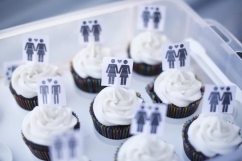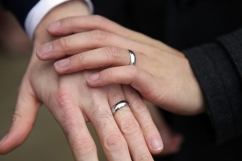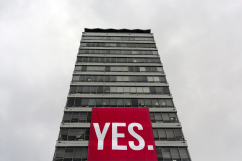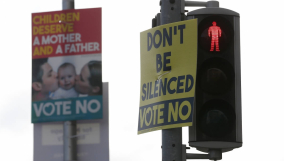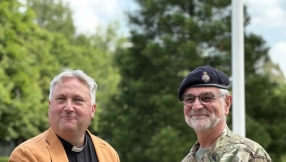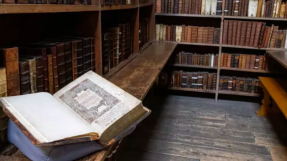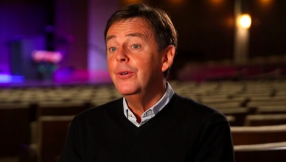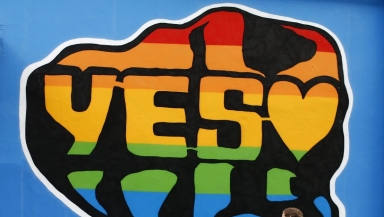
Irish voters turned out in droves to cast ballots in a gay marriage referendum on Friday, with the high turnout likely to favour the Yes side seeking equality just two decades after the country decriminalised homosexuality.
With the once mighty Catholic Church's influence ravaged by child abuse scandals, opinion polls indicated the proposal would pass by as much as two to one, making Ireland the first country to adopt same-sex marriage via a popular vote.
Irish national broadcaster RTE said it appeared to have been one of the highest ever turnouts for a referendum in the country, with turnout likely to reach 60 per cent in Dublin. Only 39 per cent voted nationally in an unsuccessful bid to abolish the upper house of parliament in 2013.
"It's looking as if there's a strong vote in urban areas, which would be more beneficial to the Yes side," said Mattie McGrath, one of just two of Ireland's 166 members of parliament who campaigned for a No vote.
"It's all to play for tomorrow, but the Yes vote might shade it," he said. There was no national exit poll and the first indications of the result were expected mid-morning on Saturday.
Yes campaigners also said the high turnout was a good sign.
"[I'm] beginning to dare to hope," said Rory O'Neill, also known by his drag queen stage name Panti Bliss, who has been one of the faces of the Yes campaign.
The result may depend on whether younger voters, tens of thousands of whom registered as the campaign gathered momentum, turn out to cast their ballots.
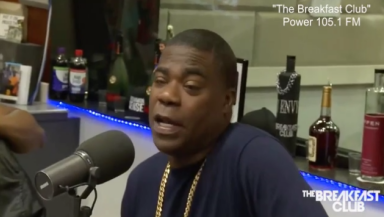
The result, which will likely be declared late Saturday afternoon, may also reveal an urban/rural split. When voters legalised divorce by a razor-thin majority in 1995, only five of the 30 constituencies outside Dublin backed the proposal.
International interest made the hashtag #VoteYes the top trending issue on Twitter and thousands of Irish expatriates made the trip home from Britain and as far afield as New York and Sydney to vote, groups encouraging the 'Yes' vote, using the hashtag #hometovote, said.
"I've been genuinely overwhelmed by the scale and the scope of the hometovote movement," said Joey Kavanagh of the Get The Boat 2 Vote group, as he and about 50 others made the eight-hour journey by train and ferry from London to Dublin.
"It's a very festive, celebratory atmosphere. At the moment we're hanging up posters in the lounge and stringing up balloons. People are just very eager to get back."
Gay marriage is backed by all political parties, championed by big employers and endorsed by celebrities, all hoping it will mark a transformation in a country that was long regarded as one of the most socially conservative in Western Europe.
The Catholic Church, whose doctrine teaches that homosexuality is a sin, has mainly limited its 'No' campaigning to sermons to its remaining flock, a marked contrast with active public opposition to similar moves in France and elsewhere.
Instead, lay groups have led the opposition, raising concerns over parenthood and surrogacy rights for gay couples. Many believe the recognition of the legal rights of same-sex couples in 2009 is sufficient.
"I don't think it's necessary because it's covered in the civil partnership arrangements," said Sean, a retiree voting in the leafy Dublin suburb of Blackrock. Only a couple of his friends were voting 'Yes', he said.
"I'm not convinced, I think it's wrong and I don't agree with it."










